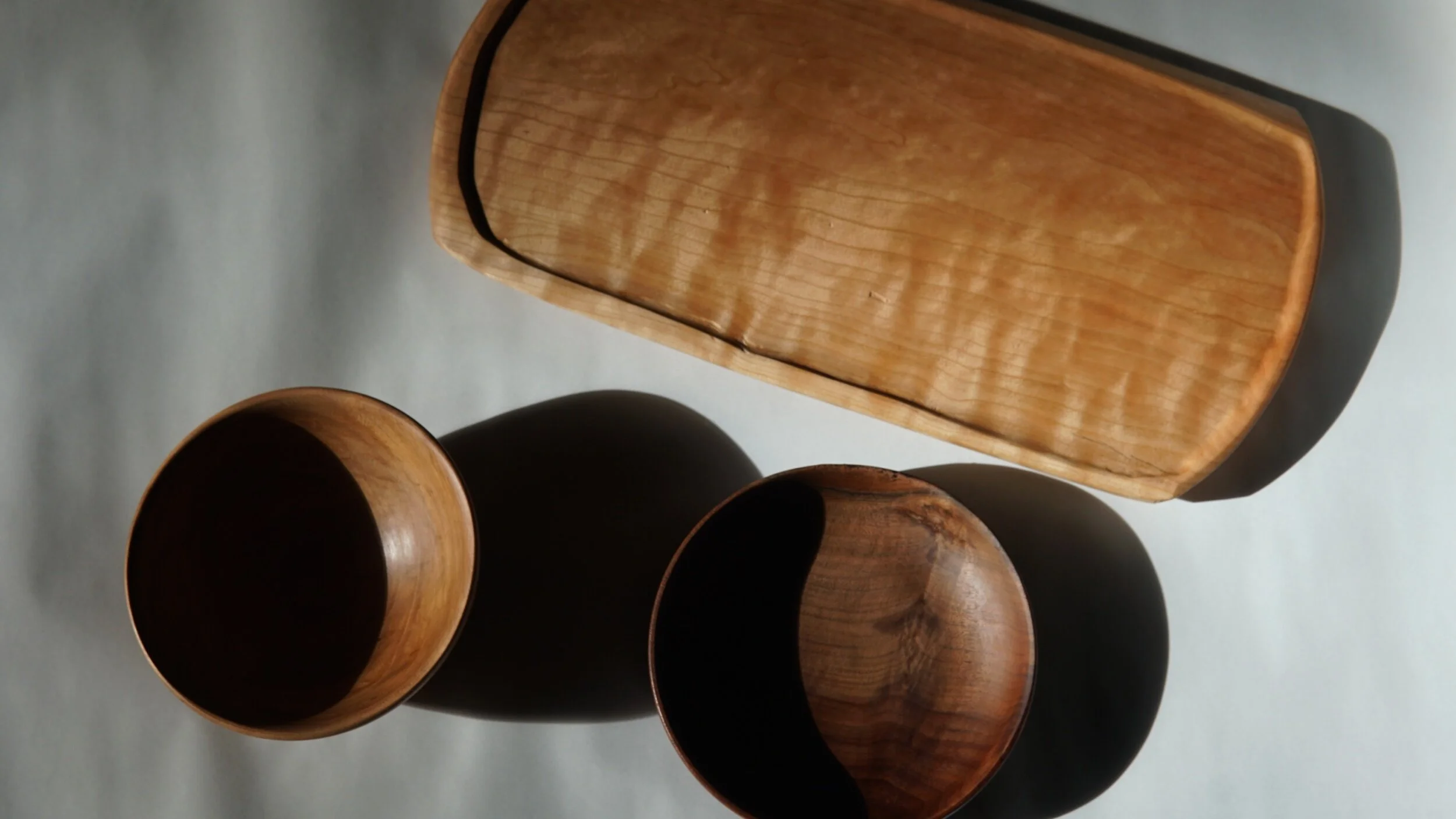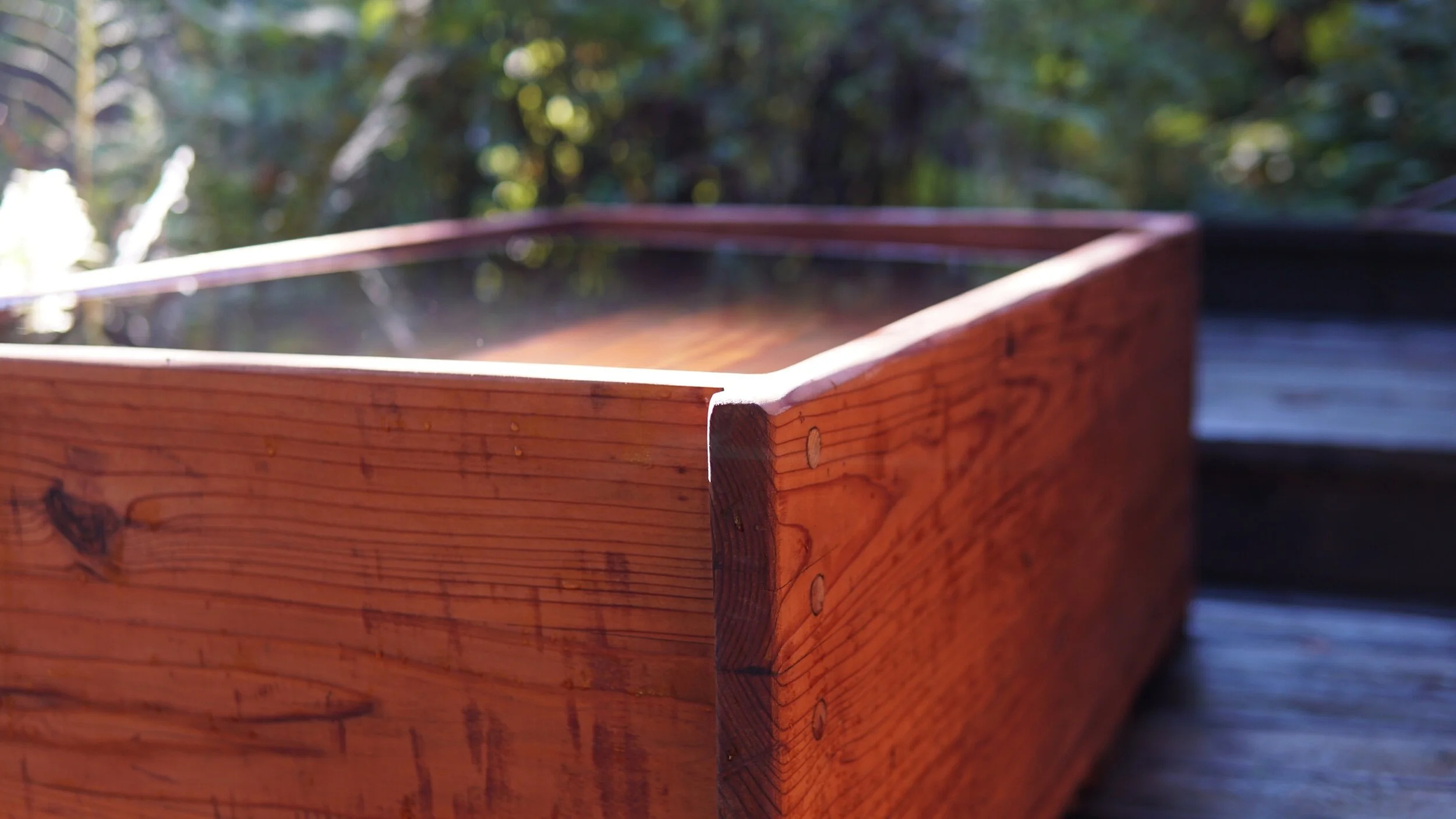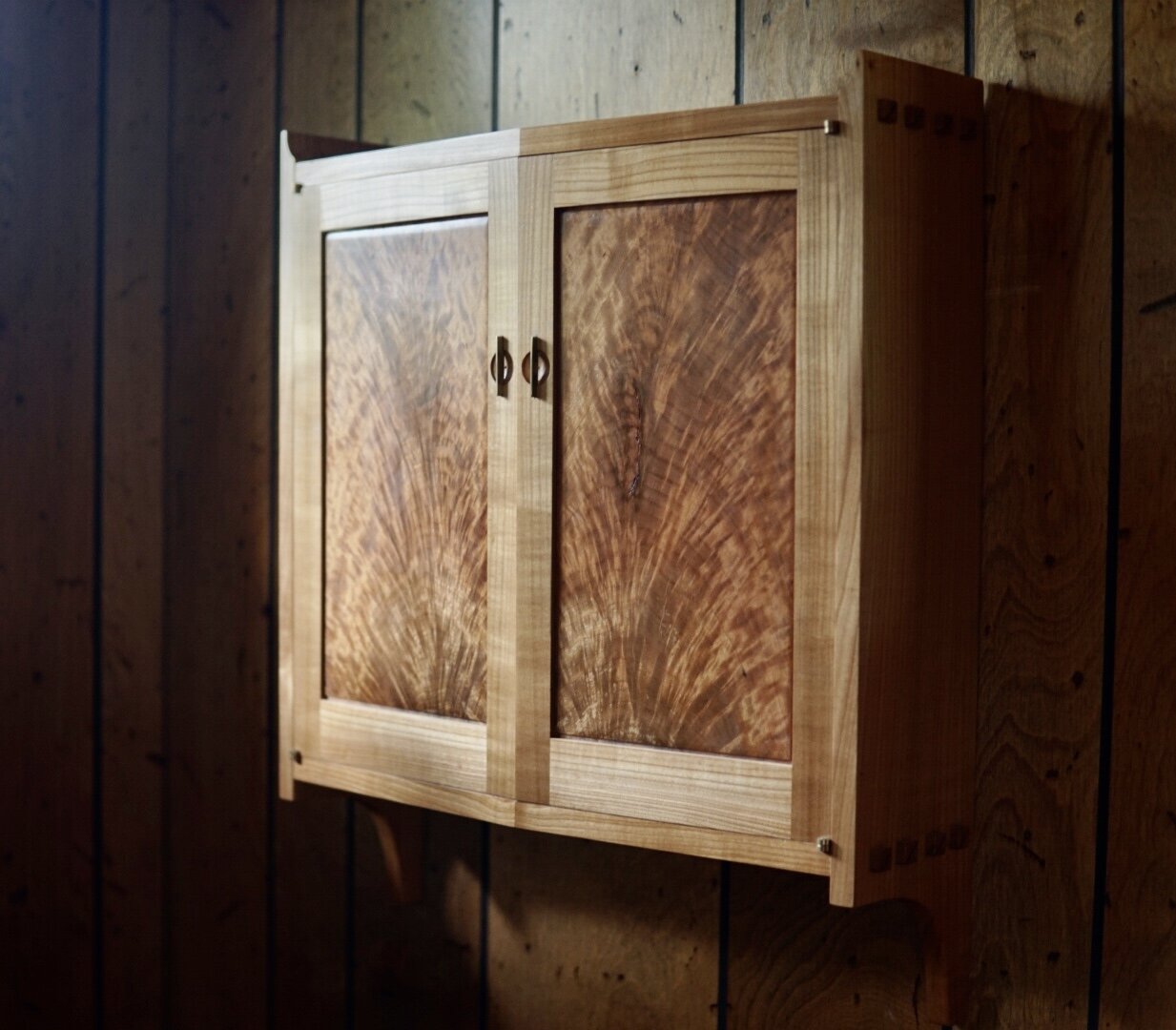Cabinetmaking and the art of going with the flow
I was listening to a podcast the other day with a woodworker, and he said something along the lines of “I was living in California a few decades ago and I found out that there was this amazing woodworking school that was almost free in-state so I went up there. I wanted to make a guitar, and only on the first day did I realize they didn’t do that there”, and of course he was talking about the Krenov School.
I know my strong suit as an artist is sculptural work. Give me a pile of clay and an idea and I don’t have to think about it, I just make. Carving wood isn’t much different, it’s just slower, and special tools are useful, but it’s the same idea. Joining two pieces of wood, however, so they meet like puzzle pieces, that was the hard part.
So I also went to the Krenov School knowing “I guess they are really into cabinets” even though that’s not the limit of what I wanted to make- I knew in it would be both the practice (more important than any book) and the first principles of how to use machines with hand tools to join wood together, and finish the outside.
It stretched me- both my skill, which is practicable, and my will. Following your heart isn’t always an easy process. They say maturity is the ability to hold two contradictory ideas in your head simultaneously. I want to be able to make anything for any client; I also want to be able to make what I want to make all the time. Rationally I can’t do both at the same time all the time, but that doesn’t matter. It’s totally ok to want multiple, contradictory things. I just start putting them in order and seeing how I can balance both. It’s super common. For example, a common political slogan: “From each according to their need; from each according to their ability”. It’s inherently contradictory, but I’ve worked hard to accept that most of life is. And my central philosophy, therefore, is about moderation. Not too much of any one thing. A holistic view of myself and a situation. An understanding that sometimes one thing needs to be done first so I can be prepared for the the next thing. An ability to see a rock in the stream ahead, and not go all in on any hardline anything. It’s not “why are we in a stream with rocks?” And it’s not “just always paddle this way and we will never hit any”. It’s flow, adapt, paddle a little on the left and a little on the right. Rest when it’s still, when the rapids come, cinch up the life vest.
It takes will, not rational intellect, to be above it all. I think this is why accepting that one needs help from a high power being a central tenet to many recovery groups is the same idea. Lift yourself up with a purpose, and a respect for yourself, and you can get through almost anything.
For me going to a cabinetmaking school was hard, in that halfway through I thought, maybe I should go to a Windsor chair making school instead. But the diligence pays off- keeping to my goal that I want to be able to make anything, I got past that hump mentally and said, let’s drop my expectations for what I want and see what we have. Not just spotting the rocks, but the safe harbors.
I’m surrounded by people who have flown from around the world to be here. There is no more passionate group of a couple dozen people under one roof I could be at in the world. All of woodworking is just problem solving anyway; there is never a perfect template or an easy way to make anything original. Here are people that put craftsmanship on a pillar first ahead of al else. I could be at a ceramics school- the mindfulness and attention to detail is the lesson, if I would listen. Most of the tools are the same regardless of what I’m making and I need to learn how to use them safely first; then precisely. This is a great place for that. And lastly, I *need* to get out of my comfort zone. I know as an artist when I’ve exhausted a medium and said everything I want to say, for the moment. Whether it’s a band, improv group, theatre group, literary magazine, newspaper- I have to recognize when I’ve said everything I know to say, and unless I rest it will all just be hot air. I’d carved, planed, sanded, manipulated single pieces of wood with hand tools so much that it wasn’t quite boring; but I’d drool over what people who could put many pieces together could do, especially without nails or screws.
Now I’m building this Frankenstein modified telecaster, and I’m purposefully not ‘looking up how to do it’. I think I know enough from fixing and setting up guitars for decades, refinishing furniture and using power tools and hand tools to carve and mill wood, along with soldering iron skills to just figure it out. All the screw holes from where it was originally are still there; I’m really only risking having a poorly set up guitar, but i know it will come together, and enough shims here and there hidden away and it will play and look great even if the insides aren’t as pretty as they maybe could be. I feel like I’m at a whole different level now. Because I learned to make cabinets. I learned to solve problems. I had the discipline to go 6 days a week, 10 hours a day to do something that’s bigger than myself.



